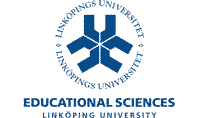|
|
| |
| SYLLABUS |
| Introduction to Special Education, Part 2 ,
7,5 ECTS Credits |
| |
COURSE CATEGORY Fristående kurs
MAIN FIELD OF STUDY
SUBJECT AREA Special Education
|
|
COURSE CODE |
|
913G02 |
|
| AIM OF THE COURSE |
On completion of the course, the student should:
- have knowledge of ethical and legal rules and approaches in educational work.
- have developed an understanding of ethical and legal dilemmas regarding including and segregating organisation of activities for teaching and learning.
- have knowledge of the steering documents' regulation of action programmes and practical management of those programmes.
- be able to identify, problematise and analyse special education work based on ethical rules and approaches and legal regulation of educational work.
- have the ability to show compassion for and understanding of individuals in complex and difficult situations. |
| CONTENTS |
| The focus of the course is on dilemma situations in the special education workday and activities. Ethical and legal considerations and positions are problematised and processed. The studies in special education regarding action programmes as tools in special education work are elaborated. Special education theory formation and approach, which was processed during module 1, are applied in the focused contents of module 2. |
| TEACHING |
Lectures and seminars are included in the course. The students' preparations include literature reading, planning and discussion in work groups prior to presentations in student groups and reporting both orally and in writing. Further field studies and collection of working documents from special education work are included.
Compulsory parts
Seminars with presentations of literature and/or assignments are compulsory. |
| EXAMINATION |
The course is examined continuously through presentations of both individual and group assignments and active participation in seminars. Examinations are both oral and written. In the examination, the student should reflect on and analyse dilemma situations in the everyday work of teacher, based on authentic cases. The written examinations take the form of take-home examinations.
Students failing an exam covering either the entire course or part of the course two times are entitled to have a new examiner appointed for the reexamination.
Students who have passed an examination may not retake it in order to improve their grades. |
| ADMISSION REQUIREMENTS |
At least two completed semesters in a teacher education, higher education qualifications from teacher education or service certificate that confirms student caring work, such as educational psychologist, school nurse or counsellor.
Completion of the course Introduction to Special Education is required. |
| GRADING |
| A grade of Pass with Credit, Pass or Fail is given for the course |
| CERTIFICATE |
| Course certificate is issued by the Faculty Board on request. The Department provides a special form which should be submitted to the Student Affairs Division. |
| COURSE LITERATURE |
|
The course literature is decided upon by the department
in question. |
| OTHER INFORMATION |
Planning and implementation of a course must take its starting point in the wording of the syllabus. The course evaluation included in each course must therefore take up the question how well the course agrees with the syllabus.
The course is carried out in such a way that both men´s and women´s experience and knowledge is made visible and developed. |
| |
Introduction to Special Education, Part 2
Introduktion till specialpedagogik, del 2 |
| |
Department responsible
for
the course or
equivalent:
IBL - Department of Behavioural Science and Learning |
| |
|
|
|
|
|
| Registrar No: 242/07-41
|
|
Course Code: 913G02 |
|
|
|
| |
|
Exam codes: see Local Computer System |
|
|
|
| Subject/Subject Area : |
|
|
|
|
|
| |
|
|
|
|
|
| Level |
|
Education level |
|
|
Subject Area Code |
|
Field of Education |
|
| G2X |
|
Basic level |
|
|
UV2 |
|
SA |
|
|
The syllabus was approved by the Board of Educational Sciences 2006-11-28
|
|
|
| |
